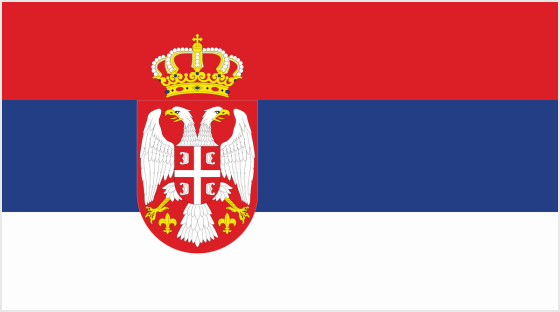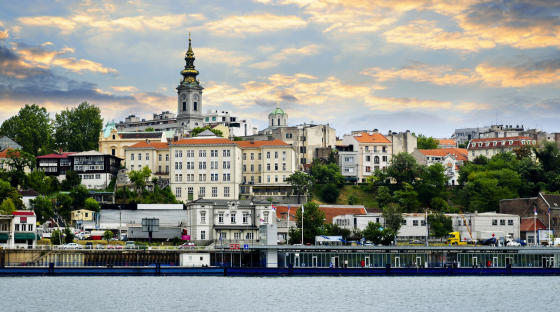-
Services
-
Software Project Delivery
-
Services
-
Solutions
-
Technologies
-
-
Network
-
Discover
-
Regions
-
Industries
-
Must-Read Guide
-
2025 Global Software Outsourcing Rates and Trends GuideDon't get left behind—discover the latest rates and strategies for success in the global software development outsourcing market in 2025.
-
-
-
Resources
-
Our Resources
-
New eBook
-
 The True Cost of Software DevelopmentHidden costs can wreck your budget. Our new eBook breaks down the true cost of outsourcing—get your copy to stay ahead.
The True Cost of Software DevelopmentHidden costs can wreck your budget. Our new eBook breaks down the true cost of outsourcing—get your copy to stay ahead.
-
-
Webinar On-Demand
-
Stop Chasing Low Hourly Rates: Unlock the True Value of Offshore DevelopmentReduce development costs without compromising quality.
-
-
Featured White paper
-
Unlock Offshore Success with Accelerance AlignDiscover how Accelerance Align helps businesses overcome software outsourcing challenges through expert guidance, cultural integration, and tailored strategies.
-
-
-
About
-
About Accelerance
-
Our History
-
Accelerance: Our HistoryThere's great talent everywhere and great teams everywhere, which is the basis of the Accelerance model.
-
-
Software Without Borders
-
New Episode Every Week!Tune into our podcast Software Without Borders, the essential listen for technology leaders and business owners in the software sector who crave insights from the industry’s top minds.
-
-
Andy's Book
-
Synergea: A Blueprint for Building Effective, Globally Distributed Teams in the New Era of Software DevelopmentPeople are first and locations are secondary when it comes to software development success.
-
-
Serbia

Overview
The gaming industry is a key pillar of the startup tech landscape in Serbia. Belgrade’s Nordeus is the creator of Top Eleven, one of the most popular online sports games in the world. Government support for the sector includes tax breaks and incentives for foreign investment.
Serbia became a stand-alone sovereign republic in 2006 after Montenegro voted in a referendum for independence from the Union of Serbia and Montenegro. The government has the challenge of maintaining relationships with Russia and China while pursuing its goal of European Union membership. A sticking point in regard to the latter is the EU’s requirement that Serbia recognize the independence of Kosovo, which declared its independence in 2008. Prime Minister Milos Vucevic had said that to do so would be a humiliation for Serbia.
The landlocked country in southeast Europe is home to 6.7 million people. Its capital, Belgrade, is one of the oldest cities in Europe and the country is home to the continent’s largest gorge, the 145-km Derdap Gorge, also known as Iron Gates.
The Accelerance Global Network is the most curated list of high-quality global teams ever assembled.
400
Developers
Total number of developers in our certified partner network by country
1
Certified Partner
Total number of certified partners in our global network by country.
9hrs
Time Travel (From NY)
Average flight time from NY to the major cities in the country.
40
Partner Innovation capability
The score reflects investment in STEM progrms and IT funding by country.
81
Partner Skill Level
Level of workforce skills and quality of education, including factors such as digital literacy, interpersonal skills, etc.
60
Partner Global Competitiveness
National productivity based on 12 core pillars, including government policy, infrastructure, economic stability, etc.
Medium
Software Outsourcing Readiness
Overall rating, based on the maturity of the tech sector, socio-political conditions, and on-the-ground research by Accelerance.

Talent Pool & Education
Serbia, like other countries in the Western Balkans, has benefited from an influx of tech professionals from Ukraine. The country’s central European location and relatively low cost of living compared to other European countries are also factors that add to its appeal as an outsourcing destination.
The government has thrown its support behind the sector, introducing a start-up registry, and tech education has been incorporated into the primary-school curricula; coding is compulsory from the age of 11. This is helping build the supply of IT sector workers at a time of rapid digitalization. Statista predicts growth in the IT sector to average 7.1% per annum through the next five years, with business process outsourcing and IT outsourcing leading the way.
A notable addition to the local tech scene is online military games developer Wargaming, which opened new studios in Belgrade and Warsaw following its decision to quit Russia and Belarus, saying both cities have “fast developing technology sectors with enormous potential”.
Language
Serbian is the official language, but English is compulsory from primary school and widely spoken, especially among young people and in professional circles.

Economic Outlook
Serbia’s economy is performing steadily. Supported by increases in consumption and investment, as well as continued strong exports, it is expected to grow at a solid 3.5% in 2024 and continue in the 3-4% range through to 2026. The World Bank identifies “chronically low investment”, as an impediment to stronger growth and says Serbia needs to remove bottlenecks for private sector investment including those related to governance, competition and the business environment.
The economy is underpinned by the industrial sector, agriculture, and the services sector, which contributes more than 52% to GDP and employs more than half the workforce. Within the latter, both ICT and tourism have grown rapidly. In the wake of Russia’s invasion of Ukraine and the resulting energy crisis, Serbia is working to diversify its heavy reliance on natural gas from Russia, encouraged by its status as a candidate country for joining the European Union.
A new gas interconnector via Bulgaria, funded by the EU will facilitate the import of gas from Azerbaijan or LNG from different sources through Turkish or Greek ports. Given the implications of geopolitics on energy supplies, politicians have recently discussed whether to end the 35-year-old, Yugoslav-era ban on nuclear reactors.
Political Conditions
Serbia is walking a diplomatic tightrope, seeking closer integration with the European Union without antagonizing Russia, its traditional ally. However, despite President Aleksandar Vučić’s right-wing Serbian Progressive Party announcing in 2022 the creation of a new political movement that would bring together a broad range of political opinions, this has not occurred.
The European Union, which accepted Serbia as a candidate country in 2012, wants to see democratic reforms and greater alignment of Serbia's foreign policy with that of the European bloc. Under Vučić, who took over as president in 2017, Serbia has been seen to be sliding towards authoritarianism.
The most recent report by the Washington-based Freedom House, a not-for-profit organization that assesses countries’ political freedom and civil liberties, scored Serbia 18 out of 40 for political rights, placing it among the “partly free, hybrid regimes” category. “The ruling Serbian Progressive Party (SNS) has steadily eroded political rights and civil liberties, putting pressure on independent media, the political opposition, and civil society organizations.”
Learn more about our customer stories.
Looking for a customer story in a specific technology or industry? Discover compelling customer narratives within a specific technology or industry that resonate with your unique software development needs.
